Psilocybin Retreats in Texas: Definition, Legality, and What to Expect
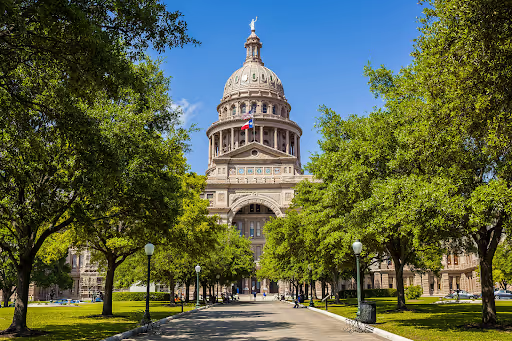
Interest in psilocybin-assisted therapy is gaining momentum across the U.S., and Texas is no exception. As mental health professionals and researchers explore alternative treatments, psilocybin retreats—offering structured, guided experiences with magic mushrooms—have become increasingly sought after. However, while these retreats are legal in some places, the situation in Texas remains complex.
This guide will provide you with an overview of the rise of psychedelic therapy, explain what psilocybin retreats entail, and discuss the legal landscape in Texas. You'll also learn what to expect from a psilocybin retreat, how to choose a reputable center, and how to prepare for this transformative experience. By the end, you'll have a clearer understanding of whether a psilocybin retreat could be a future possibility in Texas or if you might need to look outside the state for legal options.

What is Psilocybin?
Psilocybin is a naturally occurring psychedelic compound found in certain types of mushrooms, including Psilocybe cubensis, Psilocybe semilanceata, and Psilocybe cyanescens. Among these, Psilocybe cubensis is the most widely recognized and commonly used species due to its broad availability and consistent potency. Once ingested, the psilocybin in psilocybin mushrooms is converted by the body into psilocin.
Psilocybin primarily influences the brain’s serotonin system, especially the 5-HT2A receptors, which modulate mood, cognition, and perception. Additionally, research indicates that psilocybin affects the brain's default mode network (DMN), a network linked to self-referential thoughts and rumination. This leads to altered states of consciousness, which can be characterized by a dissolution of the sense of self and an increased sense of interconnectedness.
Clinical research has shown promising results for psilocybin's therapeutic potential, particularly in treating depression, anxiety, PTSD, and addiction. These benefits may be due to psilocybin’s ability to promote neuroplasticity and foster new neural pathways. However, psilocybin is currently classified as a Schedule I controlled substance, meaning its use outside of approved clinical trials or research is illegal at the federal level the U.S.
The Rise of Psychedelic Use in Texas
Historical Context
Texas has a more conservative history compared to states like California when it comes to the use of psychedelics, but the landscape is slowly evolving. Psychedelics have been used for centuries in spiritual and healing practices by indigenous communities in Central and South America, influencing the broader conversation on their therapeutic potential. In Texas, early research into psychedelic therapy began gaining traction after prominent studies from institutions like Johns Hopkins and NYU demonstrated the benefits of psilocybin in treating mental health conditions like depression and anxiety.
While Texas wasn't a major part of the counterculture movement in the 1960s, the state's medical and veteran communities have started driving interest in the therapeutic use of psychedelics, especially for treating trauma and other mental health issues.
Legal Status of Psilocybin in Texas
In Texas, psilocybin mushrooms are classified as a controlled substance under Penalty Group 2-A of the Texas Controlled Substances Act. This categorization includes strict penalties for the possession, cultivation, or distribution of psilocybin, and Texas law does not distinguish between personal use or intent to sell. Consequently, any amount of psilocybin mushrooms can result in felony charges. Despite some legislative efforts to study and explore therapeutic uses of psilocybin, such as House Bill 1802 and other proposals, no significant legal changes have been made.
Read: Are Mushrooms Legal in Texas? What to Know (2024)
What is a Psilocybin Retreat?
Psilocybin retreats are immersive programs designed to facilitate personal transformation and healing using psilocybin, the active compound in “magic mushrooms.” These retreats often take place in nature-based environments and are structured to provide a safe and supportive setting for participants to engage in introspective experiences. Psilocybin retreats are typically led by trained facilitators who guide participants through their journeys, helping them access deeper levels of consciousness and work through emotional or psychological challenges.
One goal of psilocybin retreats could be to leverage the therapeutic potential of psilocybin to treat conditions such as depression, anxiety, post-traumatic stress disorder (PTSD), and substance use disorders. The structured setting ensures that participants are carefully prepared for the experience and supported during their psychedelic journey. Psilocybin retreats often include preparatory and integration activities, such as meditation, journaling, and group discussions, to enhance the overall experience and help participants process their insights.
Types of Retreats
Psilocybin retreats come in a variety of forms, depending on the participant's goals and needs, and can be contrasted with private, one-on-one sessions.
- Group retreats: Group retreats emphasize shared experiences and group activities. Participants often take part in group ceremonies, where psilocybin is administered in a supportive shared setting. Activities such as breathwork, meditation, and sharing circles are common elements of these retreats.
- Private, personalized sessions: These offer individualized experiences where participants receive one-on-one attention from facilitators. Private sessions can be tailored to address specific mental health needs, providing a more intimate therapeutic experience.
Regardless of the type, all psilocybin retreats focus on creating an environment conducive to personal growth and mental health healing through the controlled, guided use of psychedelics.
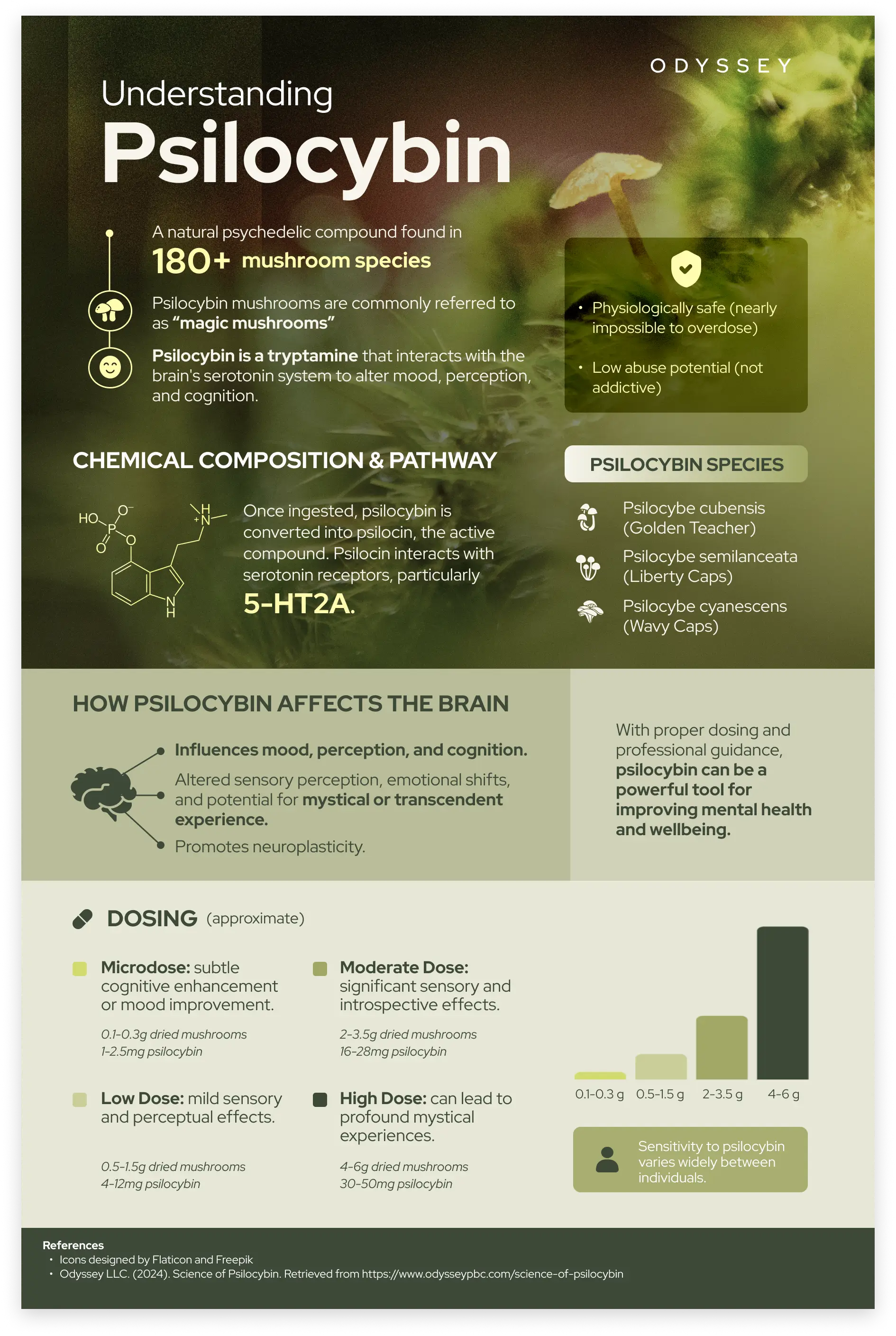
The Psilocybin Experience
Effects of Psilocybin
Psilocybin, once ingested, is rapidly metabolized into its active form, psilocin, which primarily acts on the 5-HT2A serotonin receptors in the brain. This receptor activity leads to increased cortical activity and connectivity between different brain regions, resulting in an altered perception of time, space, and self. Research indicates that these changes are primarily seen in brain networks involved in mood regulation, cognition, and sensory processing.
The effects of magic mushrooms include visual and auditory distortions, an altered sense of time, enhanced introspection, and in some cases, mystical or ego-dissolution experiences, where individuals lose the sense of separateness from their surroundings. These experiences are closely linked to its therapeutic potential, as the altered brain states can facilitate emotional release, cognitive restructuring, and the breaking of maladaptive patterns, which are particularly relevant in treating disorders like depression and anxiety.
Duration and Intensity
The onset of psilocybin’s effects typically occurs within 30–60 minutes of ingestion and the acute experience generally lasts between 4 to 6 hours, although this can vary depending on individual metabolism, dose, and environmental factors. During this time, brain imaging studies have shown reduced activity in the default mode network (DMN), which is associated with self-referential thinking and rumination. This deactivation of the DMN is believed to be a critical factor in psilocybin's ability to alleviate symptoms of mental health conditions.
Potential Benefits
Psilocybin has been studied for its potential therapeutic applications in treating psychiatric conditions, including treatment-resistant depression (TRD), end-of-life anxiety, post-traumatic stress disorder (PTSD), and substance use disorder. Clinical trials from institutions like Johns Hopkins and NYU Langone have shown that psilocybin can lead to significant, long-lasting reductions in symptoms after one or two sessions, with effects persisting for six months or longer. Psilocybin promotes neuroplasticity, aiding in the formation of new neural connections and the disruption of maladaptive patterns, offering a durable framework for mental health improvements. It has also shown promise in reducing existential distress in terminally ill patients and supporting recovery from substance dependence through enhanced emotional processing and psychological flexibility.
Read: Psilocybin Therapy for Depression and Psilocybin Therapy for Obsessive-Compulsive Disorder (OCD)
Choosing a Psilocybin Retreat in Texas
While psilocybin retreats are currently illegal in Texas due to the state's strict drug laws, understanding how to choose a reputable retreat can help you plan for the future or explore options in legal locations like Oregon and Colorado. For immediate access to legal, evidence-based psilocybin experiences, check out Odyssey.
Factors to Consider
When selecting a psilocybin retreat, safety, the expertise of facilitators, and the structure of the program are important considerations. Well-organized retreats often involve comprehensive medical and psychological screenings before the experience to ensure that participants do not have any underlying conditions that might pose a risk during a psilocybin session. Psilocybin may be less safe for individuals with a history of certain mental health or cardiac conditions, so transparency about one’s health status is crucial.
It’s also important to evaluate the retreat’s overall philosophy and methodology. Some centers lean on traditional, shamanic practices, while others emphasize modern therapeutic approaches grounded in scientific research. Another thing to look for is retreats that offer extensive preparation and integration support, as these steps are essential for ensuring the long-term psychological benefits of the experience. Preparation sessions help set the right mindset, and post-experience integration helps participants process the emotions and insights gained during the journey.
Safety Measures
Safety protocols can be a central consideration when choosing a psilocybin retreat. Many professional retreats have trained facilitators who offer support throughout the experience, with harm reduction practices that help maintain a controlled environment to reduce potential risks. Clear protocols for emergencies or adverse reactions are also often in place, adding another layer of safety.
Some retreats also prioritize post-experience support, seeing integration as a key component of the healing process. This support can take various forms, such as one-on-one counseling, group sessions, or follow-up therapy, each aimed at helping participants make the most of their experience.
Read The Safety of Psilocybin Therapy
Cost and Duration
Psilocybin retreats vary in cost and duration. Some programs offer week-long experiences with more than one dosing session and integration days. When comparing costs, consider what's included in the total price, such as accommodation, meals, and additional therapeutic services. Potential participants may also wish to inquire about the dosage of psilocybin offered, as this can significantly impact the experience and potential therapeutic benefits.
Legality
As of 2024, psilocybin retreats are not legal in Texas. However, they are legal at licensed healing centers in Oregon and are currently being set up in Colorado after the passing of Proposition 122. Get started with Odyssey’s matching form for first access to upcoming evidence-based and professionally-guided psilocybin retreats in both states.
What to Expect
Medical Screening
Before embarking on a psilocybin retreat, participants may undergo a medical screening to ensure their health and safety. Special attention is given to any cardiac conditions or medications, such as SSRIs or benzodiazepines, that could interact with psilocybin. Ensuring a clean bill of health is critical in avoiding any complications during the psychedelic journey.
What to Bring
The items needed for a psilocybin retreat vary depending on its length and location, but generally, participants should bring comfortable clothing, a journal, a water bottle, and perhaps a blanket or pillow for extra comfort during the session. Some retreats also provide eye masks and headphones to help enhance the inward-focused experience. It’s always best to check with the retreat organizers for a full list of recommended items.
The Psilocybin Session, Integration, and Follow-Up
During the psilocybin session, participants consume a carefully measured dose in a serene, controlled environment, typically lying down with a blindfold or eye mask while soothing music plays. The session can last between 4-6 hours, during which a trained facilitator will be present to offer support if needed. Following the session, integration plays a vital role in making sense of the experience. Participants may engage in discussions, journaling, or group sharing sessions to reflect on the insights they gained. Many retreats offer follow-up support to ensure that the benefits of the experience translate into lasting personal growth.
Past Odyssey retreat attendees have shared their transformative experiences:
- “Virtually impossible to find the words to adequately describe the experience. Out of this universe … beyond impactful … filled with powerful emotional meaning and healing. Odyssey curates their guests’ experience with the deepest attention to meaning, sensitivity to each individual, unbounded love and caring, comfort, emotional presence, and passion.” – Jean
- “I was able to work with, feel and help heal major traumas in my life. I was also able to glean clarity in areas where I was unsure how to proceed or understand my true feelings. It helped strip away things that aren't truly important and remember what is...love, connection, compassion, family and my impact on the world. I gained a better understanding of habitual behaviors and regain an understanding of my true essence.” – Sam
- “This experience, while challenging, was also imbued with a sense of peace, bliss, and a serene calmness that enveloped me in a way I've never felt in my almost 50 years of existence. I experienced an intense feeling of love, a deep connection with my loved ones, and a profound oneness with the world around me.” – Laura
Conclusion
Psilocybin retreats offer a unique blend of personal growth, emotional healing, and spiritual exploration. While these experiences remain illegal in Texas as of 2024, there is growing momentum both in the state and nationwide to explore the therapeutic potential of psychedelics. Retreats in places like Oregon and Colorado provide legally sanctioned environments for individuals to experience the profound effects of psilocybin in a supportive, structured setting.
As interest in psychedelic therapy expands, more people are turning to psilocybin as a promising treatment for mental health challenges like depression, anxiety, PTSD, and addiction. However, the importance of safety cannot be overstated. When considering a psilocybin retreat, it’s essential to choose one that prioritizes thorough screening, mental preparation, and integration support to maximize the benefits of the experience while minimizing risks.
The road to psilocybin legalization in Texas is still uncertain, but with ongoing legislative efforts and increased public interest, the future may bring new opportunities for Texans to legally explore psilocybin therapy. Until then, those seeking these transformative experiences must look to states and countries where the practice is legal and regulated, ensuring a safe and potentially life-changing journey.
Psilocybin Retreats in Texas – FAQs
What is psychedelic therapy?
- Psychedelic therapy involves the guided use of psychedelic substances–like psilocybin, ketamine, MDMA, and others–to facilitate therapeutic breakthroughs. These substances help individuals explore deep emotional or psychological issues in a controlled environment, often with trained facilitators guiding the process.
Is psilocybin legal in Texas?
- No, psilocybin remains illegal in Texas as of 2024. It is classified as a Schedule I controlled substance, meaning its possession, use, and sale are prohibited. Penalties for violating this law can be severe, including felony charges depending on the amount involved.
Where are psilocybin retreats legal?
- Currently, psilocybin retreats are legal in Oregon and Colorado, where they are regulated under state law. Jamaica is another country where legal, licensed psilocybin retreats are available. Many participants from states like Texas travel to these locations to experience psilocybin therapy in legal settings.
What are the benefits of psilocybin therapy?
- Research shows that psilocybin therapy may help reduce symptoms of depression, anxiety, PTSD, and addiction. Studies suggest that psilocybin, when combined with therapy, can enhance neuroplasticity, allowing individuals to break negative thought patterns and gain new perspectives on their mental health challenges.
How much does a psilocybin retreat cost?
- Psilocybin retreats generally range from $3,000 to $10,000, depending on the location, duration, and level of amenities provided. Shorter retreats may be less expensive, while luxury retreats with extensive support services can be on the higher end of the price spectrum.
Can I grow psilocybin mushrooms at home in Texas?
- No, home cultivation of any psilocybin mushroom is illegal in Texas. Those caught growing magic mushrooms face criminal charges under the Texas Controlled Substances Act. Only in states where psilocybin has been decriminalized or legalized, like Oregon, is personal cultivation allowed under strict regulations.

.svg)
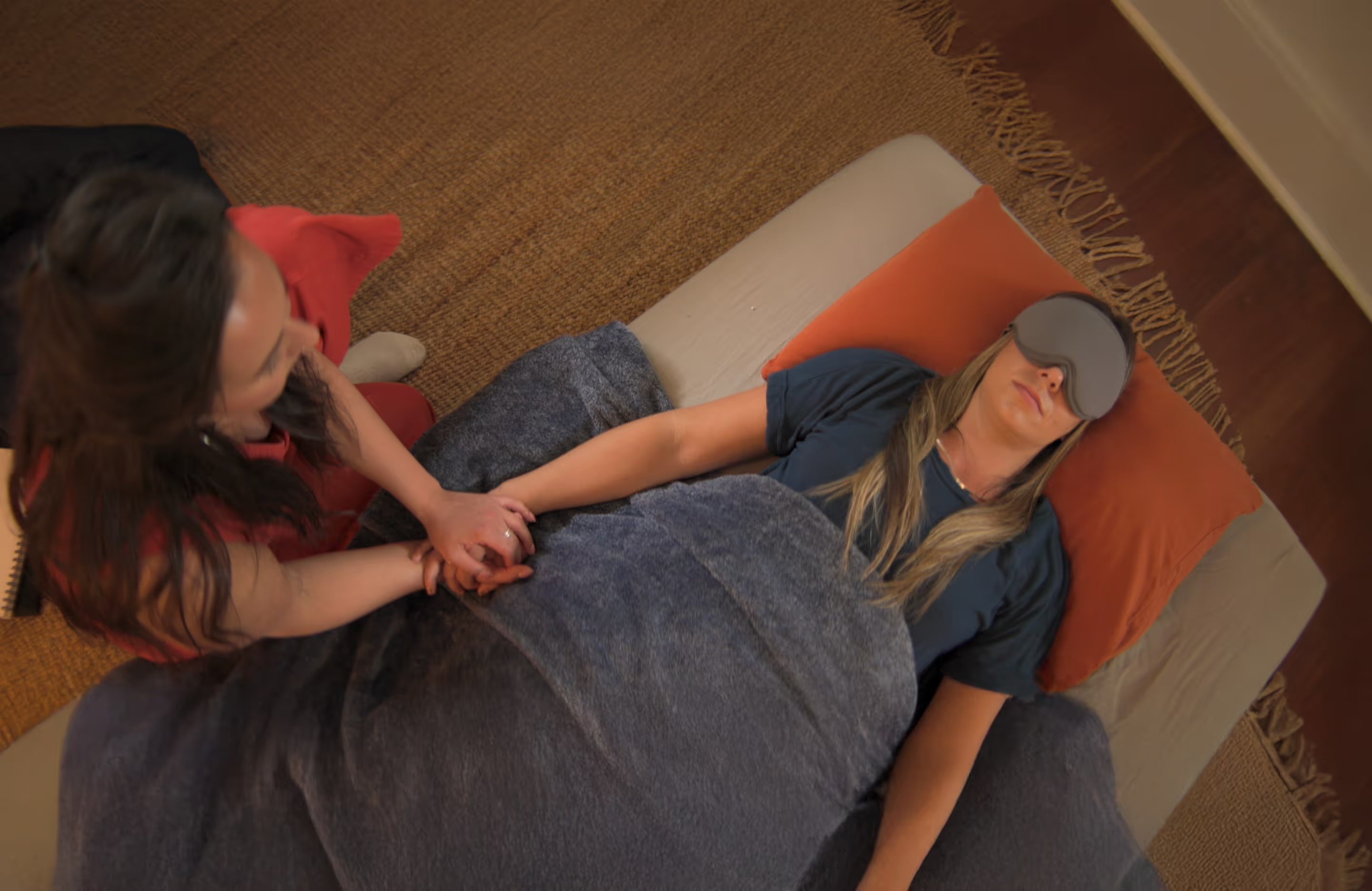
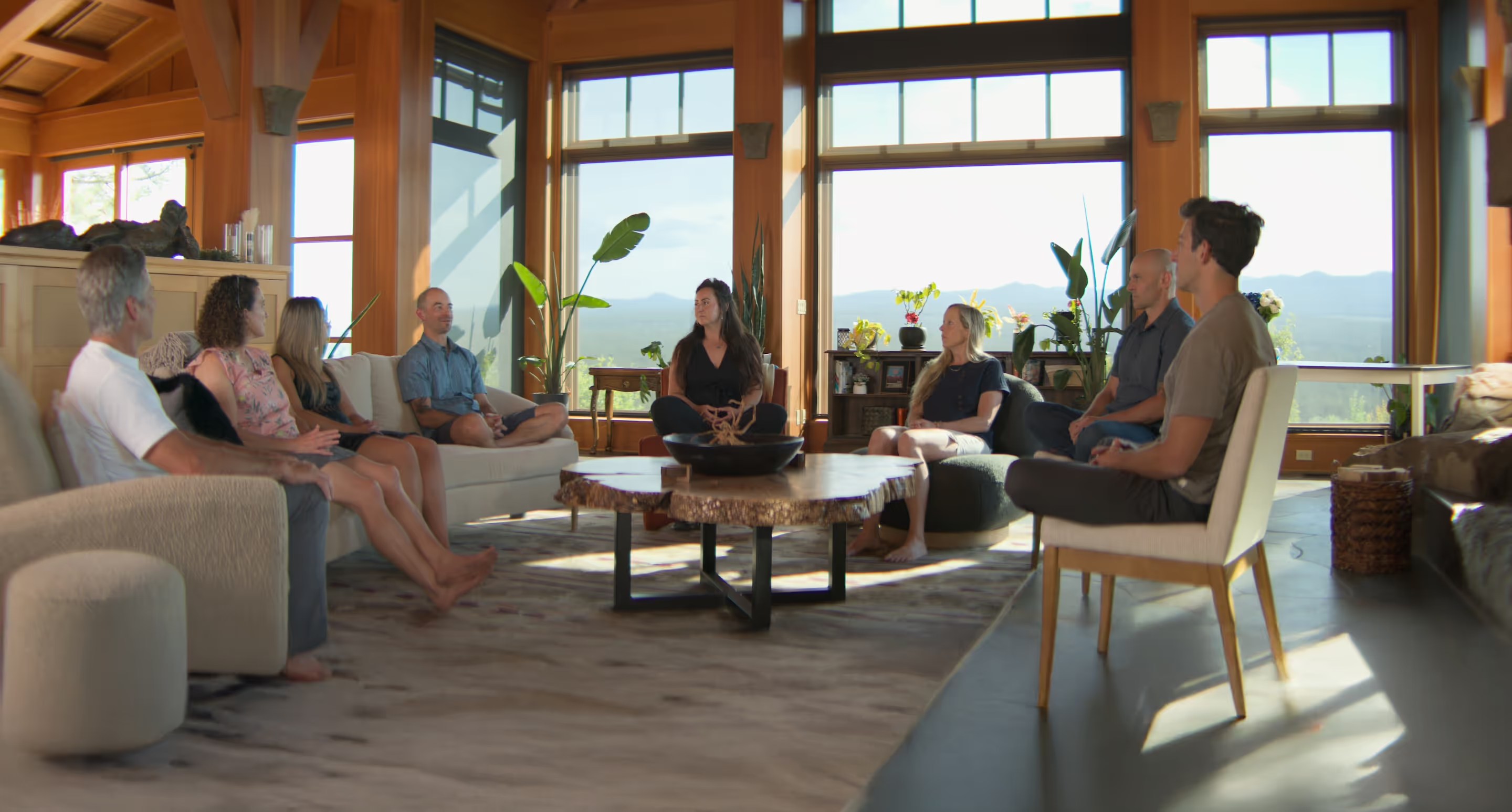



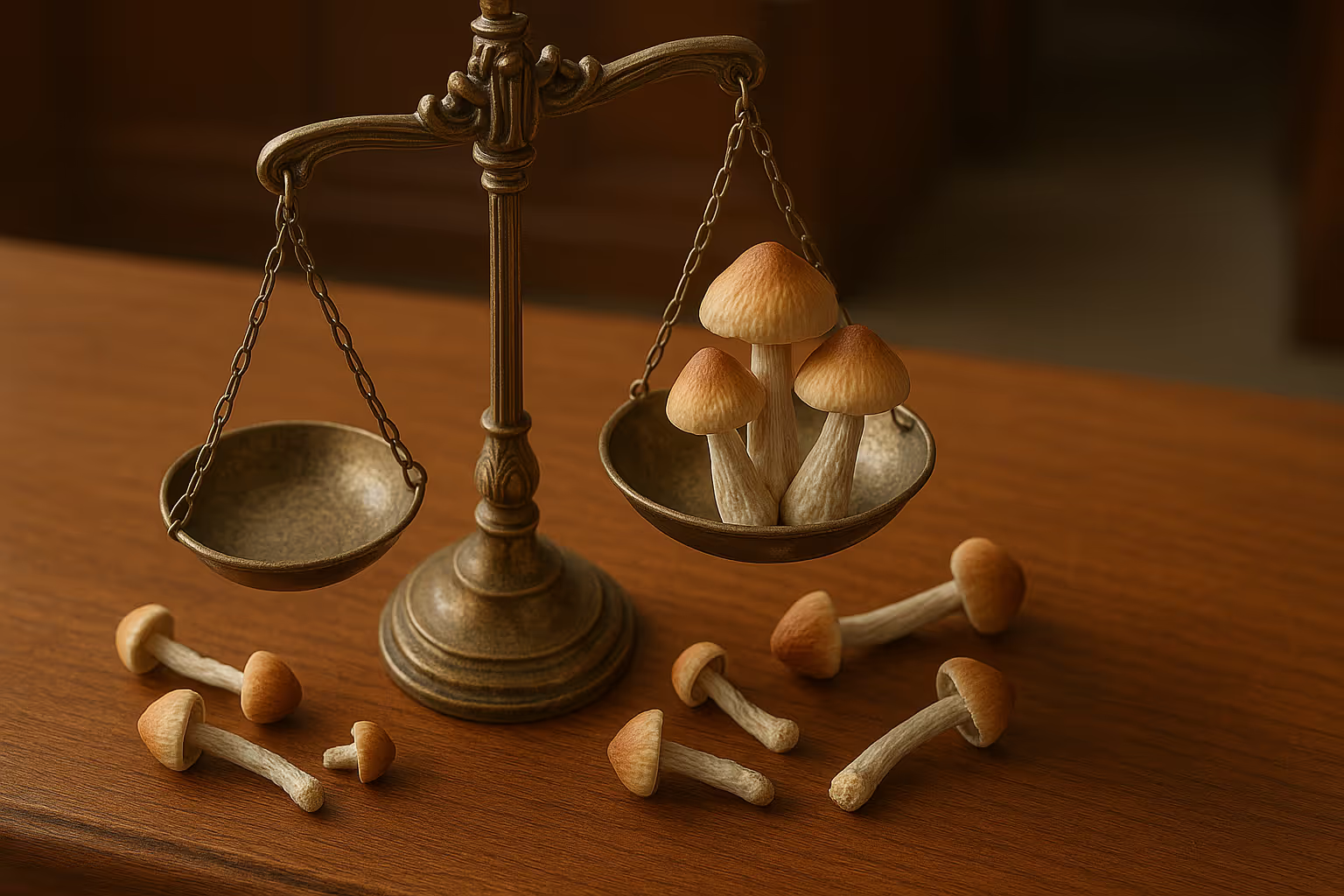



.svg)